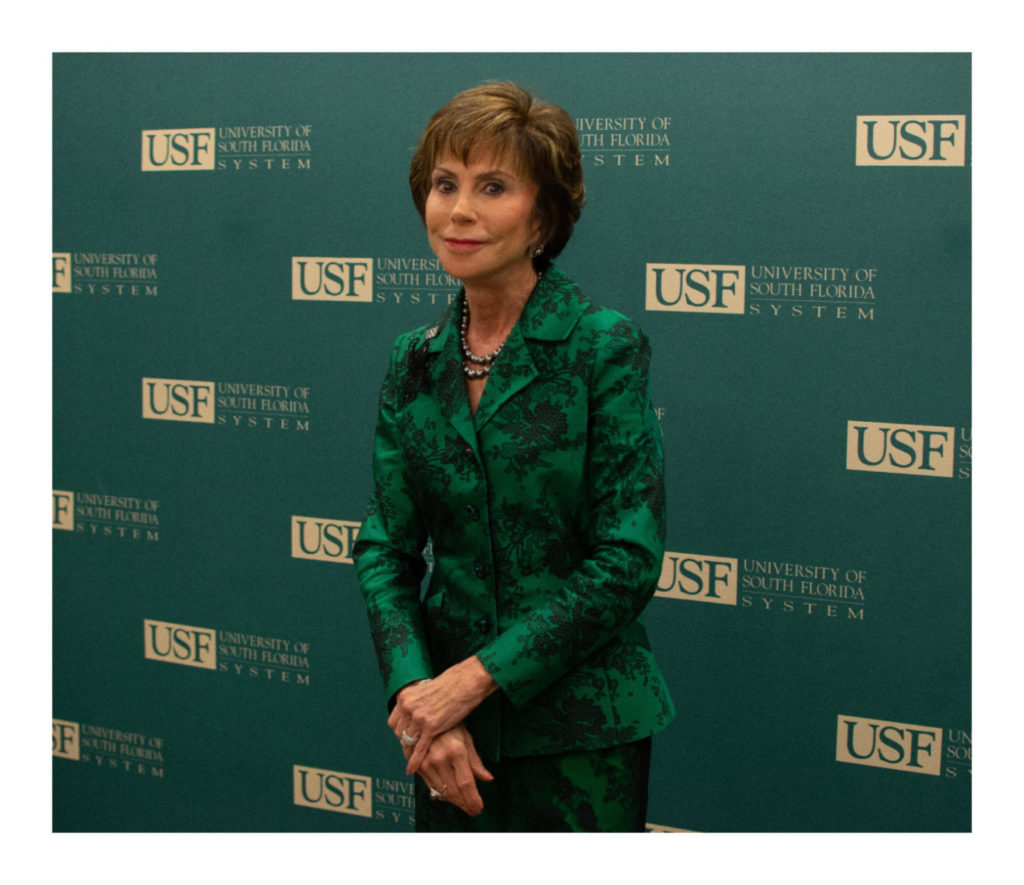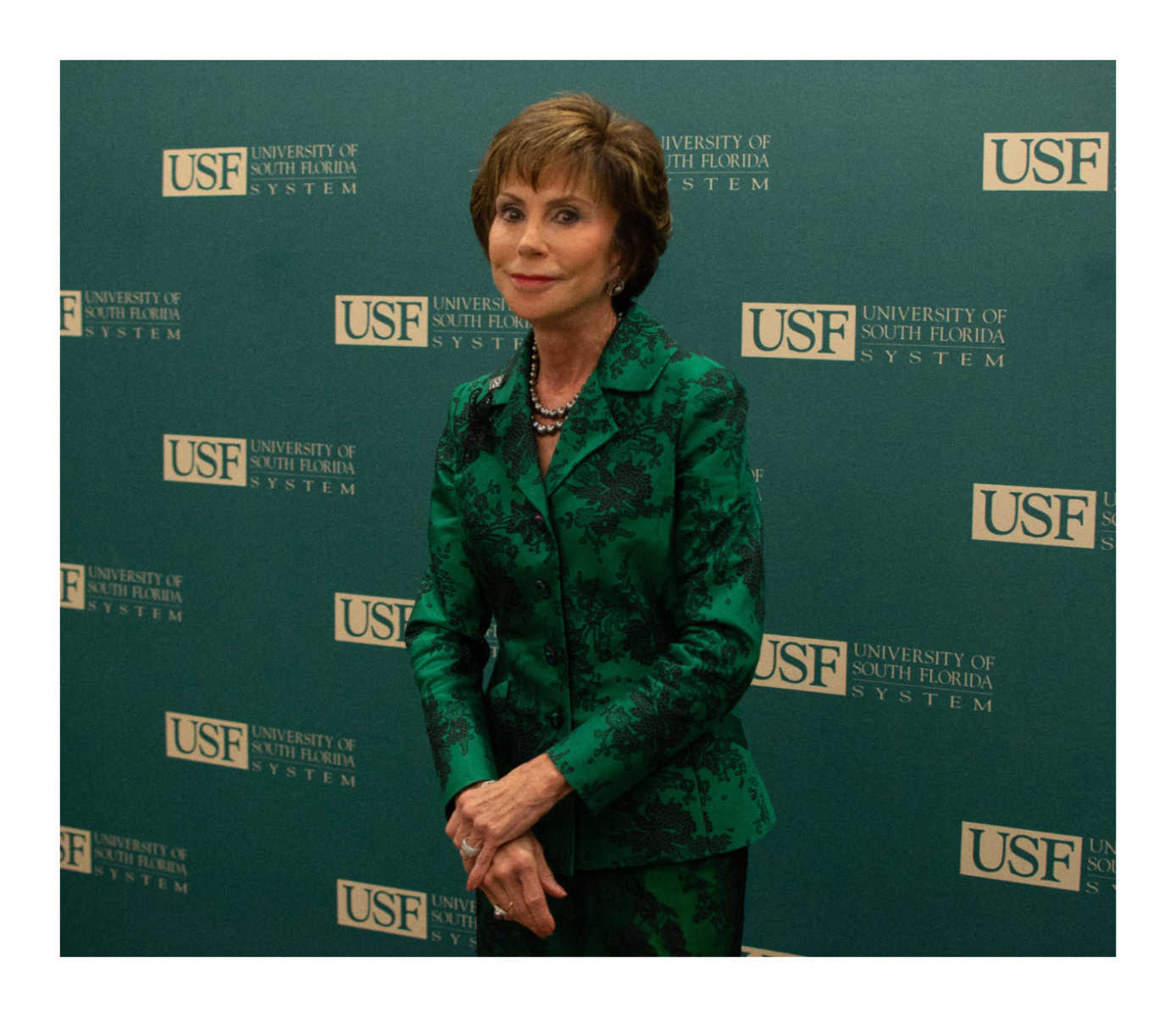
By Nancy McCann
A key piece of the complex puzzle called consolidation planning will click into place this week.
On Feb. 12, the Consolidation Task Force will present its recommendations to the Board of Trustees on how to merge the three campuses of the USF system into one university with a single accreditation.
For seven months, the high-profile, 13-member task force held a series of public meetings and town halls on the campuses to listen to faculty, students, staff and members of the community describe their visions of a consolidated USF.
The often heartfelt input about USF St. Petersburg was consistent and clear: Please preserve our unique campus with strong ties to the community, quality research and instruction, and individual attention to students.
The task force echoes what it heard from the campus and community in its 120-page report, which will be presented by chairman Mike Griffin to two committees of the Board of Trustees at 8 a.m. on Feb. 12 in the Marshall Center on the Tampa campus.
The report recommends that USF St. Petersburg and USF Sarasota-Manatee be designated branch campuses with their “own faculty and administrative or supervisory organization” and their own “budgetary and hiring authority.”
But these are recommendations, not decisions, and there are concerns in St. Petersburg that high-level Tampa administrators have something else in mind. That could result in the two smaller campuses becoming more like instructional sites with little authority and control.
In a Crow’s Nest interview on Jan. 24, USF system President Judy Genshaft said the St. Petersburg campus could end up having “a mixture of elements” that would not fall clearly within the definitions of branch campus or instructional site.
Adam Freeman, spokesperson for the USF system, said in an email on Jan. 25 that the status of the two small campuses was one of the key issues left unresolved in the draft report of the Consolidation Implementation Committee.
The CIC is another consolidation planning group. Its 86 members – administrators, faculty and staff – worked internally and on a parallel track with the task force.
The CIC included copies of the task force recommendations in its Dec. 19 draft report, which it presented to Genshaft and the trustees on Jan. 14.
But the CIC did not make its own recommendation about the structure of the two smaller campuses.
The CIC’s report acknowledges that one of the guiding principles of the consolidation plan is “celebrating the diversity and unique identities of all three campuses by building on existing strengths … across the consolidated university.”
It proposes that a detailed plan would establish “academic and administrative structures consistent with the requirements of a preeminent research university in the state.”
Anxiety about the fate of the St. Petersburg campus has simmered since last September, when a draft report by Huron Consulting Group, an outside consultant retained by the USF system, seemed to favor the large Tampa campus at the expense of St. Petersburg and Sarasota-Manatee.
Now time is short. The trustees must propose a consolidation plan to the state board that oversees Florida’s public universities by March 15.
There are countless issues that must be resolved before consolidation takes effect in July 2020. But to some in St. Petersburg, no issue seems more important than the status of their city’s campus (4,812 students) and the even smaller campus in Sarasota-Manatee (2,077 students).
The task force’s report – and its call for branch campuses – has been endorsed by three key state legislators: Rep. Chris Sprowls, R-Palm Harbor, and Sens. Bill Galvano. R-Bradenton, and Jeff Brandes, R-St. Petersburg.
Sprowls, the chairman of the powerful House Rules Committee, is in line to be House speaker in 2021-2022. Galvano is president of the Senate, and Brandes is one of the Senate’s most influential members.
As leaders and members of the Legislature’s dominant party, the three lawmakers have considerable influence on higher education and the state budget.
The task force report and the endorsements from legislative leaders were welcomed last week in an editorial in the Tampa Bay Times, which called on Genshaft and the trustees to “build the consolidation on this solid foundation (branch campuses) and avoid any appearance of a hostile takeover.”
As a branch campus – not an instructional site – “the (St. Petersburg) campus chancellor and faculty leaders can continue to tailor spending and programs to meet the needs of students who sought a smaller academic environment,” the Times editorial said.
“They can ensure individual attention remains a priority and that USFSP remains closely aligned to the community. They also will have a better shot at attracting and keeping quality professors.”
The branch campus approach was also endorsed by a history professor who worked on both the St. Petersburg and Tampa campuses from 1972 to 1992.
In a letter to the editor of the Times, Steven F. Lawson, now a professor emeritus at Rutgers University, recalled that the two campuses “had different missions and resources, and trying to impose a single standard of decision-making and peer review proved unfair to faculty on both sides of the bay.”
When USF St. Petersburg became a campus “that controlled its own internal affairs,” he wrote, it was transformed “into a dynamic, student/community institution, a lovely, modern campus on the bay.
“Turning it now into anything but a branch campus will reverse the progress that has been made over the past 25 years and create the academic, administrative nightmare that existed before then. We mustn’t let history repeat itself.”
James Bennett III contributed to this report.
Read the Times editorial at: https://www.tampabay.com/opinion/editorials/editorial-usfsp-should-be-a-branch-campus-20190205/
Read professor Steven F. Lawson’s letter to the editor at: https://www.tampabay.com/letters/fridays-letters-from-my-experience-usfsp-needs-to-be-a-branch-campus-20190207/



